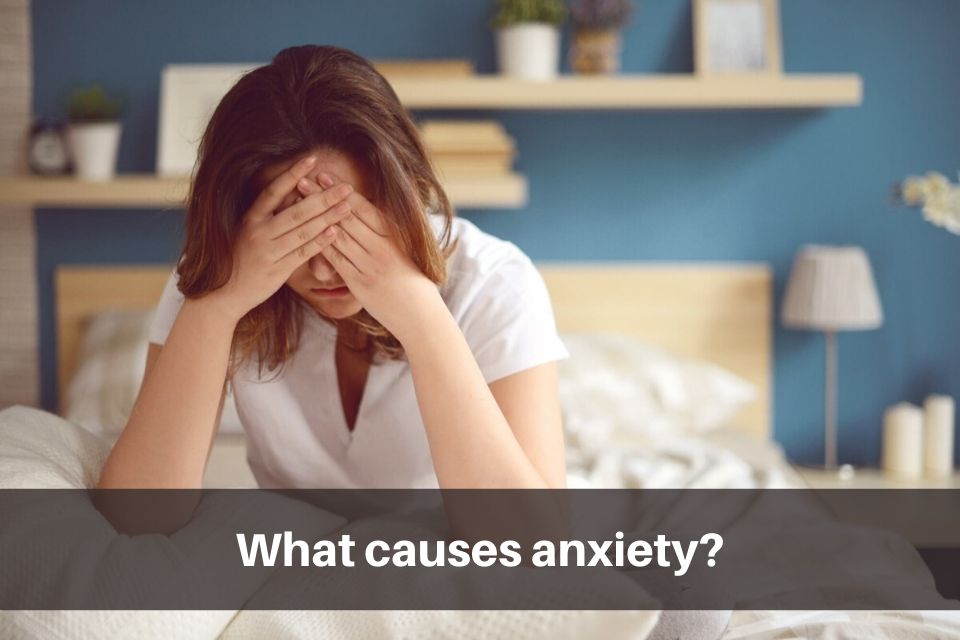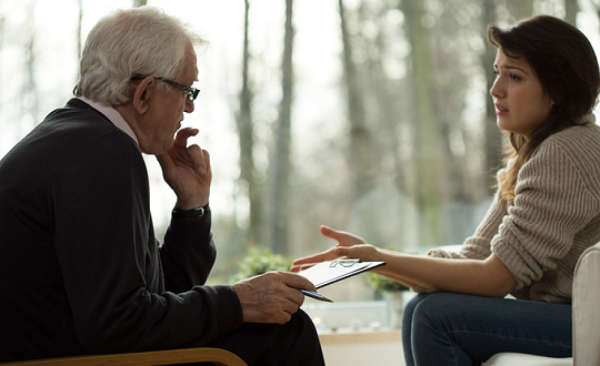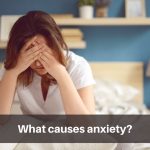What causes anxiety?

Anxiety is a mental condition which isn’t developed or caused by a single factor but a combination of things. Various other factors are responsible for anxiety-like personality factors, difficult life experiences and physical health.
Causes of Anxiety
According to the National Institute of Mental Health, a combination of genetic and environmental factors might play a role in causing anxiety. Brain chemistry is also being studied as a possible cause since the areas of your brain that control your fear response may be involved in this. Let’s have a look at other causes of anxiety.
Types of Anxiety Disorders
| S.No. | Anxiety Disorders | |
|---|---|---|
| 1 | Agoraphobia | |
| 2 | Generalized anxiety disorder (GAD) | |
| 3 | Obsessive-compulsive disorder (OCD) | |
| 4 | Panic disorder | |
| 5 | Post-traumatic stress disorder (PTSD) | |
| 6 | Selective mutism | |
| 7 | Separation anxiety disorder | |
| 8 | Specific phobias | |
Past or childhood experiences
Difficult or traumatic experiences in childhood, adolescence or adulthood are a common trigger for anxiety problems. Going through stress and trauma have a big impact if it happens when the person is very young. Not just that but having parents who don’t treat you warmly, are overprotective or are emotionally erratic can also be a factor. Experiencing such difficulties can trigger anxiety problems include things like:
- physical or emotional abuse
- neglect
- losing a parent
- being bullied or being socially excluded.
Your current life situation
Your current life issues can also trigger anxiety. This includes:
- exhaustion or a buildup of stress
- long working hours
- being out of work
- feeling pressure while studying or at work
- having money problems
- homelessness or housing problems
- losing someone close to you
- feeling lonely or isolated
- being bullied, harassed or abused.

Physical or mental health problems
Physical or mental health problems can sometimes cause anxiety or might make it worse. For example:
- Living with a serious, ongoing or life-threatening physical health problem can sometimes trigger anxiety.
- It’s also common to develop anxiety while living with other mental health problems, like depression.
Drugs and medication
Anxiety can sometimes be a side effect of:
- Taking psychiatric medications
- Consuming medications for physical health problems
- Taking recreational drugs or alcohol
Treatments for Anxiety
1. Professional Therapy
You can take help from a professional therapist if you are dealing with Anxiety. The treatment options mentioned below require the assistance of mental health or medical providers or other licensed professionals:
- Cognitive-behavioural therapy
- Dialectical behavioural therapy
- Exposure Therapy
- Group Therapy
- Hypnosis

2. Prescription Medications
The medications described below should only be obtained with a prescription. Primary care physicians can diagnose and treat anxiety, but it is recommended that you consult a psychiatrist for severe anxiety disorders.
- SSRIs and SNRIs
- Benzodiazepines
- Beta-Blockers
- Off-Label and Other Drugs
3. Brain Stimulation Therapies
Brain Stimulation Therapies target the regions of the brain that influence stress, anxiety, mood, and fear response. It includes:
- DBS
- rTMS
- Vagus Nerve Stimulation
- Other Brain Stimulation Therapies
4. Self-Help
For those who seek alternatives to traditional medicine, self-help and complementary and alternative medicine (CAM) may be useful. Such methods include:
- Exercise
- Diet and Nutrition
- Meditation and Mindfulness
- Relaxation Techniques
- Herbal Supplements
Summing Up
Unless you experience contrary side effects, don’t be too quick to abandon treatment, if you are taking one, because it doesn’t provide instantaneous results. Remember to discuss all side effects with your mental health provider and never stop taking the medication without consulting your doctor because an abrupt stop may cause other health problems.




